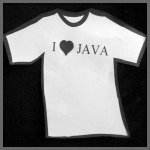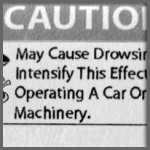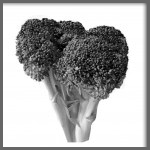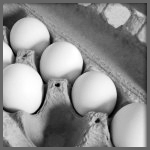True.
 The trend in our society is to do everything in a hurry and many Americans report that they feel rushed on a daily basis. Regretfully, this often carries over to our nutritional practices as well. I read recently that Americans now eat 1 out of 5 meals (that’s 20%!) in their cars. I remember, as will many of you, being scolded by my mother for eating too fast. I was the youngest of four boys. Breakfast, lunch, and dinner were by no means times to sit down, talk, and socialize as a family, they were times to eat. I imagine we looked like pigs bellying up to a trough during those meals. At times, I still find myself eating too fast and have also wondered if the speed at which we eat impacts the number of calories we consume. It looks like research is starting to address that very question.
The trend in our society is to do everything in a hurry and many Americans report that they feel rushed on a daily basis. Regretfully, this often carries over to our nutritional practices as well. I read recently that Americans now eat 1 out of 5 meals (that’s 20%!) in their cars. I remember, as will many of you, being scolded by my mother for eating too fast. I was the youngest of four boys. Breakfast, lunch, and dinner were by no means times to sit down, talk, and socialize as a family, they were times to eat. I imagine we looked like pigs bellying up to a trough during those meals. At times, I still find myself eating too fast and have also wondered if the speed at which we eat impacts the number of calories we consume. It looks like research is starting to address that very question.
An interesting study conducted by Andrade and colleagues (2008) and published in the Journal of the American Dietetic Association examined number of calories consumed and satiety (the feeling of being full and satisfied after a meal), in participants who either ate a meal quickly (in 8 minutes) or slowly (in 29 minutes). The authors results showed that research participants who ate fast consumed on average 645 calories, whereas those who ate more slowly consumed 579 calories. Interestingly, those participants who ate slower also consumed more water during the meal, 409 grams of water verses 289 grams for those who ate quickly. The slower eaters also rated the meal as more satisfying and pleasant. So, there appears to be a number of benefits to eating slower, though I imagine the scolding I received from my mother for eating too fast came from a fear of choking. One of the reasons we might eat less when we eat slowly is that it takes about 20 minutes for our body to signal itself when it is full. My advice is to slow down, enjoy your food, and you will likely take in fewer calories.
Reference:
Andrade A, Greene G, Melanson K: Eating slowly let to decreases in energy intake within meals in healthy women. Journal of the American Dietetic Association (2008), July 2008, pps. 1186-1191.





